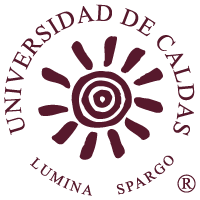| dc.contributor.author | Sankey, Howard | spa |
| dc.date.accessioned | 2010-06-18 00:00:00 | |
| dc.date.available | 2010-06-18 00:00:00 | |
| dc.date.issued | 2010-06-18 | |
| dc.identifier.issn | 0124-6127 | |
| dc.identifier.uri | https://revistasojs.ucaldas.edu.co/index.php/discusionesfilosoficas/article/view/545 | |
| dc.description.abstract | ¿La ciencia otorga conocimiento de la realidad? En este artículo ofrezco una respuesta positiva a esta pregunta. Rechazo la pretensión anti-realista según la cual somos incapaces de adquirir conocimiento de la realidad; al contrario, apoyo la visión realista que afirma que la ciencia produce conocimiento del mundo externo. Pero: ¿cuál mundo es ese? Algunos sostienen que la ciencia conduce a la superación de nuestra visión del mundo dada por el sentido común. El sentido común es la “metafísica de la edad de piedra” que debe rechazarse como la teoría falsa de nuestros primitivos ancestros. Contra tales eliminativistas acerca del sentido común, planteo que la ciencia conserva y explica la experiencia del mundo dada por el sentido común. Aunque la ciencia puede llevar a la superación de creencias profundamente arraigadas, el sentido común refleja un nivel de experiencia más básico y duradero. Las creencias del sentido común son creencias bien confirmadas que se justifican por su papel en la acción práctica exitosa de la vida diaria. El sentido común otorga una base sólida sobre la cual establecer el enfoque realista a la ciencia. | spa |
| dc.description.abstract | Does science provide knowledge of reality? In this paper, I offer a positive response to this question. I reject the antirealist claim that we are unable to acquire knowledge of reality in favor of the realist view that science yields knowledge of the external world. But what world is that? Some argue that science leads to the overthrown of our commonsense view of the world. Common sense is “stone-age metaphysics” to be rejected as the false theory of our primitive ancestors. Against such eliminativists about common sense, I argue that science both preserves and explains commonsense experience of the world. Though science may lead to the overthrown of deeply held beliefs, common sense reflects a more basic and durable level of experience. Commonsense beliefs are well-confirmed beliefs which are vindicated by their role in successful practical action each and every day. Common sense provides a firm basis on which to establish the realist approach to science. | eng |
| dc.format.mimetype | application/pdf | spa |
| dc.language.iso | spa | spa |
| dc.publisher | Universidad de Caldas | spa |
| dc.rights | Derechos de autor 2010 Discusiones Filosóficas | spa |
| dc.rights.uri | https://creativecommons.org/licenses/by/4.0/ | spa |
| dc.source | https://revistasojs.ucaldas.edu.co/index.php/discusionesfilosoficas/article/view/545 | spa |
| dc.subject | Scientific realism | eng |
| dc.subject | commonsense realism | eng |
| dc.subject | Kuhn | eng |
| dc.subject | van Fraassen | eng |
| dc.subject | Eddington | eng |
| dc.subject | Realismo científico | spa |
| dc.subject | realismo del sentido común | spa |
| dc.subject | Kuhn | spa |
| dc.subject | van Fraassen | spa |
| dc.subject | Eddington | spa |
| dc.title | Ciencia, sentido común y realidad | spa |
| dc.type | Artículo de revista | spa |
| dc.type | Sección Artículos | spa |
| dc.type | Journal Article | eng |
| dc.identifier.eissn | 2462-9596 | |
| dc.relation.citationendpage | 58 | |
| dc.relation.citationissue | 16 | spa |
| dc.relation.citationstartpage | 41 | |
| dc.relation.citationvolume | 11 | spa |
| dc.relation.ispartofjournal | Discusiones Filosóficas | spa |
| dc.relation.references | ALSPECTOR KELLY, M. (2004). Seeing the Unobservable: Van Fraassen and the Limits of Experience. En: Synthese. vol. 140, p. 331-353. | spa |
| dc.relation.references | CAMPBELL, K. (1988). Philosophy and Common Sense. En: Philosophy. vol. 63, p. 161-174. | spa |
| dc.relation.references | DEVITT, M. (2002). A Naturalistic Defence of Realism. En: MARSONET, M. (Ed). The Problem of Realism. Aldershot: Ashgate. | spa |
| dc.relation.references | EDDINGTON, Sir A.S. (1933). The Nature of the Physical World. Cambridge: Cambridge University Press. | spa |
| dc.relation.references | HOYNINGEN HUENE, P. (1993). Reconstructing Scientific Revolutions: Thomas Kuhn’s Philosophy of Science. Chicago: University of Chicago Press. | spa |
| dc.relation.references | KITCHER, P. (2001). Real Realism: The Galilean Strategy. En: The Philosophical Review. vol. 110, p. 151-197. | spa |
| dc.relation.references | KUHN, T. S. (1996). The Structure of Scientific Revolutions. 3a. ed. Chicago: University of Chicago Press. | spa |
| dc.relation.references | ________. (2001). The Road Since Structure. En: CONANT, J. y HAUGELAND, J. (Eds). The Road Since STRUCTURE. Chicago: University of Chicago Press. | spa |
| dc.relation.references | MAGNUS, P. D. (2003). Success, Truth and the Galilean Strategy. En: British Journal for the Philosophy of Science. vol. 54, p. 465-474. | spa |
| dc.relation.references | QUINE, W.V.O. (1969). Natural Kinds. En: Ontological Relativity and Other Essays. New York: Columbia University Press. | spa |
| dc.relation.references | STICH, S. (1990). The Fragmentation of Reason. Cambridge, Mass: MIT Press. | spa |
| dc.relation.references | Van FRAASSEN, B. (1980). The Scientific Image. Oxford: Oxford University Press. | spa |
| dc.rights.accessrights | info:eu-repo/semantics/openAccess | spa |
| dc.title.translated | Science, common sense and reality | eng |
| dc.type.coar | http://purl.org/coar/resource_type/c_6501 | spa |
| dc.type.content | Text | spa |
| dc.type.driver | info:eu-repo/semantics/article | spa |
| dc.type.version | info:eu-repo/semantics/publishedVersion | spa |
| dc.relation.citationedition | Núm. 16 , Año 2010 : Enero - Junio | spa |
| dc.relation.bitstream | https://revistasojs.ucaldas.edu.co/index.php/discusionesfilosoficas/article/download/545/470 | |
| dc.type.coarversion | http://purl.org/coar/version/c_970fb48d4fbd8a85 | spa |
| dc.rights.coar | http://purl.org/coar/access_right/c_abf2 | spa |





